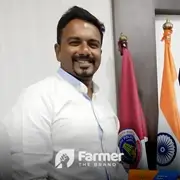
Tourism can support sustainable development and achieve the SDG goal of alleviation of poverty. Tourism has a great ability to develop any region and also address issues like unemployment, revenue generation. Agro-Ecotourism will help to conserve the local environment and will sustain the well-being of local people, thereby promoting their local culture and create job opportunities too. Farmers and Farms remain an integral part of development in Agro ecotourism and also give opportunities to develop new markets based on the traditional and indigenous crops been raised at the farm. It also offers a new knowledge gateway for the tourists and consumers regarding traditional agriculture production systems. Agro-Tourism models will enhance the linkages of the agriculture and food system with the nutrition, health, and socio-economic status of the people. Agro ecotourism should be popularized in order to maximize the potential of well-managed ecotourism as a key economic force for the conservation of nature. Agro ecotourism depends on well planning and maximizing the potential of the area. The development of the area needs to be highlighted keeping in mind the revenues it can bring.

Naveen Krishnan, a farmer from Trichy, has been making his mark in the field of agro-tourism in Tamil Nadu. Naveen Garden in Musiri, Trichy District, is an integrated farm about 20 acres and is been turned into an agro-tourism hub. He did attend the FTB, A Krishi Jagran Initiative hosted by KJ Tamil Nadu, and spoke in detail about the specialties of Venture and Farm.
Apart from Farming and Cows, Poultry, Camel, Horse, and Donkeys, the Farm is a house for many rare animals that attract visitors like Persian cats and rare South African Green Peacocks. He has around 15 species of dogs, various kinds of birds and fish are maintained here. Naveen says he noticed that Donkeys were being bred as a hobby in Tamil Nadu it is also becoming in a professional set up and so he decided to keep donkeys and they even get sold from the farm. Naveen also points out that the wooden house he owns is the highlight of the farm, and he also says that 30 people could be accommodated on the farm for training at one time.

He also shares with us about his interest in Miyawaki and that his farms have about 6000 trees of 120 varieties of fruit trees and rare medicinal trees. This forest has also helped create awareness among the tourists about forest conservation and its benefits. The large agricultural pond that is also used as a swimming pool, says Naveen Krishnan.
Visitors could also register for classes on agriculture, goat rearing, poultry, beekeeping, pet training, vegetable farming, and tree planting. Farmers can visit the farm for free, a 100 rupee fee for school children, and 200 rupees for the general public and 500 rupees for day-long training with Naveen.
Naveen Krishnan signs off by saying that this journey isn’t an easy ride. There are umpteen opportunities in the agro-tourism sector and they have to be explored before one makes a choice. A detailed understanding of the sector is essential before choosing a tourism farm as a career. Well Planning of your income needs to be a priority, he says. He says that he earns up to Rs. 50,000 per month and he hopes that would scale up in the coming months after Lockdown rules eases.


















Share your comments